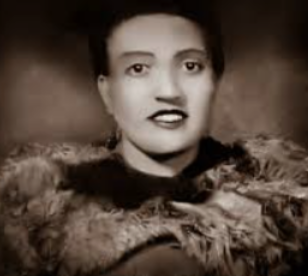Advancements in the understanding and treatment of cervical cancer are inextricably intertwined with Black History Month. Why? Because the “HeLa cells” used in the scientific research that generated the HPV vaccines were from the cells of Henrietta Lacks, a Black woman who lost her life to cervical cancer in 1951, at age 31.

Physicians at Johns Hopkins University, where Lacks was treated, cultured cells from her tumors for medical research (notably, without her or her family’s knowledge or consent). Her cells survived, thrived, and multiplied outside her body, so much so that they have been in continual use in labs around the world. HeLa cells have helped change the course of modern medicine, contributing to medical breakthroughs including the development of the polio vaccine, and treatments for cancer, HIV/AIDS, leukemia, and Parkinson’s disease. HeLa cells were also of course instrumental to the development of the HPV vaccines.
Today in America, Blacks face the highest death rate and lowest survival rate of any racial or ethnic group for most cancers. This is certainly true for cervical cancer. Although in the U.S. cervical cancer occurs most often in Hispanic women, Black women tend to have lower 5-year survival rates and die from the disease more often than any other race. In fact, they have twice the cervical cancer mortality rate compared to white women, according to the American Cancer Society. Henrietta Lacks, through her children and grandchildren, is continuing to have impact and address disparities.
The Henrietta Lacks Enhancing Cancer Research Act
Federal legislation focused on closing health gaps and improving access to clinical trials for people of color was signed into law in January 2021: the “Henrietta Lacks Enhancing Cancer Research Act” now mandates the government to reduce barriers to enrollment for underrepresented populations in federally-funded cancer clinical trials.
“While cancer impacts everyone, it does not affect everyone equally,” says Lisa Lacasse, president of the American Cancer Society Cancer Action Network. “The Henrietta Lacks Enhancing Cancer Research Act is critical to changing this reality, improving cancer outcomes and reducing health disparities in this country.” The newly enacted law builds upon Henrietta Lacks’ legacy by ensuring equitable access to advancements in cancer treatment for all people.
Learn More About Henrietta Lacks on World Cancer Day (Feb. 4)
In recognition of Black History Month (February) and World Cancer Day (Feb. 4) is a special virtual event: Henrietta Lacks’ great-granddaughter Veronica Robinson will host a conversation with the American Cancer Society Cancer Action Network’s VP of Federal Advocacy & Strategic Alliances, Keysha Brooks-Coley to discuss the new legislation, its importance and its intended impact on addressing some of the cancer disparities in our country. The event will be held Thursday, Feb. 4 at 1:00 PM ET on Zoom and Facebook Live. Learn more and register.

One thought on “What Do Black History Month and World Cancer Day (Feb. 4) Have In Common?”